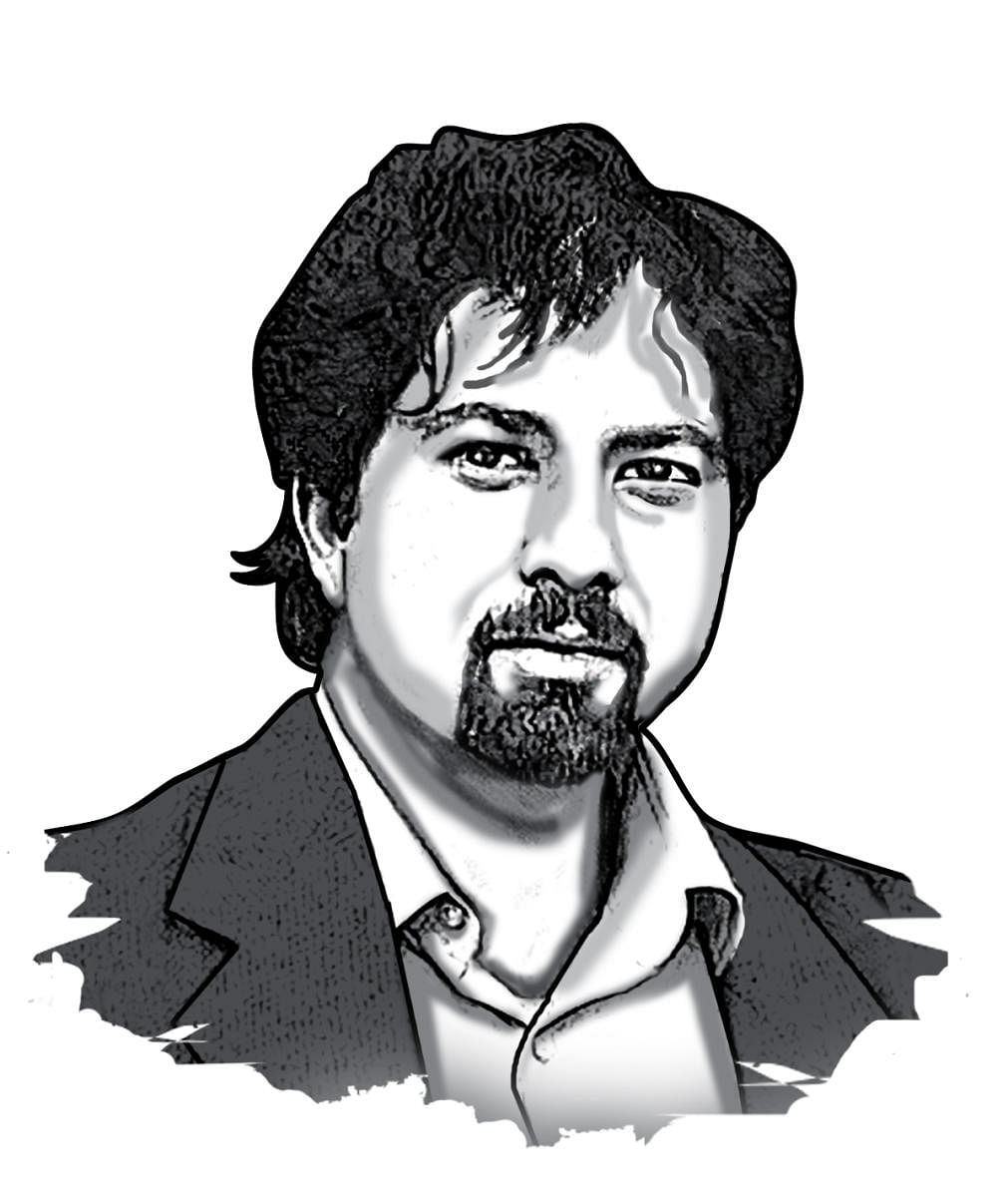
The Nasadiya Sukta in the Rig Veda is regarded as the Hindu creation hymn. But unlike the creation hymns of the Semitic religions, it does not assert that the universe was created by an omnipotent, omnipresent God and the manner in which it was done. Rather, the hymn merely wonders:
Who really knows?
Who will here proclaim it?
Whence was it produced?
Whence is this creation?
The gods came afterwards, with the
creation of this universe.
Who then knows whence it has arisen?
Whence this creation has arisen
– perhaps it formed itself, or perhaps it
did not –
the One who looks down on it,
in the highest heaven, only He knows
or perhaps even He does not know.
Have you come across the dialogue between Sage Vyasa and Lord Ganesha, when the former asks the latter to be his scribe and write down the Mahabharata?
Vyasa: Oh Lord, please write down the verses as I compose them. There’s no else who can do so at my speed.
Ganesha: Gladly, oh Sage! But once I start writing, you cannot stop to think. Your composition must flow without a gap.
Vyasa: Alright, oh Lord, but you must not write a single verse without understanding it.
Finally, there is this unbelievable story that I heard and experienced years ago. The Sonda (Swaadi) Matha is in the middle of a forest near Sirsi taluk. If you were to stay overnight at the temple and get to sleep right in front of the sanctum sanctorum, at around 3.30 am, you will suddenly wake up to the sound of the temple bells. You will see no one near the bells, but you will see them swinging. If you feel terrified and want to run out, you will find the large door heavily bolted. You can’t go out at that time. Temple authorities will give you a strange explanation. They will tell you that you cannot step out because in the temple pond, an inversion of reality is occurring: Lord Vishnu is performing puja to Vadiraja Theertha, a 16th century Madhwa saint. Yes, you read that right: God performs puja of man!
Now, none of this is a provable truth or fact, they are all imaginations of human minds. But what kind of human mind imagines that God did not create the universe and, perhaps, may not even know where it came from? What kind of human mind imagines a human challenging God intellectually, that too the God of Intellect himself? What kind of human mind imagines that God performs puja of man?
Aren’t all these thoughts blasphemous?
They would be, in a religion of the Book, in the Semitic religions. In Hinduism, it’s just curiosity and creativity, and evolution of the mind -- from the Vedic age through the epics and puranas to about the 16th century!
Of course, this is not to refute the failings of the Brahminical caste system or the difficult history of Hinduism’s interaction with Buddhism, for instance, nor to refute that the evolution of the Hindu mind came to a halt at some point of time and began regressing.
But recent events in France – a cartoon of the Prophet recreated deliberately to provoke Muslims; a Muslim refugee from Tunisia beheading a schoolteacher in revenge; the French President seemingly coming out in defence of Charlie Hebdo in the name of freedom of speech but failing the test on sensitivity towards religious feelings – made me look inward and think of the essence of Hinduism, and these few gems from the universe of Hindu philosophy, myths and temple lore.
It is, of course, easy to conclude that ‘Hinduism’ and we Hindus – by the way, I’m a non-believer, Charvaka/agnostic, if you please -- are superior to the rest of the world. But it may be more prudent to recall Al Beruni’s chiding – “The Hindus believe there is no country like theirs; no religion like theirs, no science like theirs, no kings like theirs…They are haughty, and self-conceited…”
Sure, Janani Janmabhoomischa Swargadapi Gariyasi. But think how far we have strayed from those Hindu minds that thought and debated so freely, so broadly, and so fearlessly, and think what we have become in pursuit of the political project of Hindutva. Self-proclaimed protectors of Hindutva almost burnt down some of our greatest treasures at the Bhandarkar Oriental Institute in 2004, angered merely by rumours of an insult to Chhatrapati Shivaji. In the last few years, they have weaponised Jai Shri Ram. And in an extension of the idea of blasphemy to the political arena, our Prime Minister has become unquestionable. You can’t question him anywhere, in any way -- not in a press conference, not by RTI, and now not even in Parliament. If you question him, you are anti-national, anti-Hindu!
Christianity, and the West, progressed and adapted itself to the coming world of democracy by separating State from religion; the free-spirited Hindu mind evolved by its irreverent attitude to authority (even that of God Himself, what to speak of kings and prime ministers) and by questioning and debating existing ideas. Madhwacharya’s Dvaitha did not come about without questioning and arguing against Shankara’s Advaitha; Basavanna’s Vachanas and social reform did not come about without debunking Brahminical ideas of caste and holiness.
The Muslim mind is yet to come to terms with the need to debate the ideas of its religion and adapt to the ideas of modern sovereign nations, secularism and democracy. We should hasten it not by fuelling a ‘Clash of Civilisations’ but by enabling a ‘Dialogue of Civilisations.’ Yes, we can be Vishwaguru in that respect, but for that, we must give up the political project of the Hindutva nation and return to the courageous blasphemy of Hindu imagination.
(DH’s Opinion Editor lives the life of an owl, and can turn his head 270o @sraghotham)